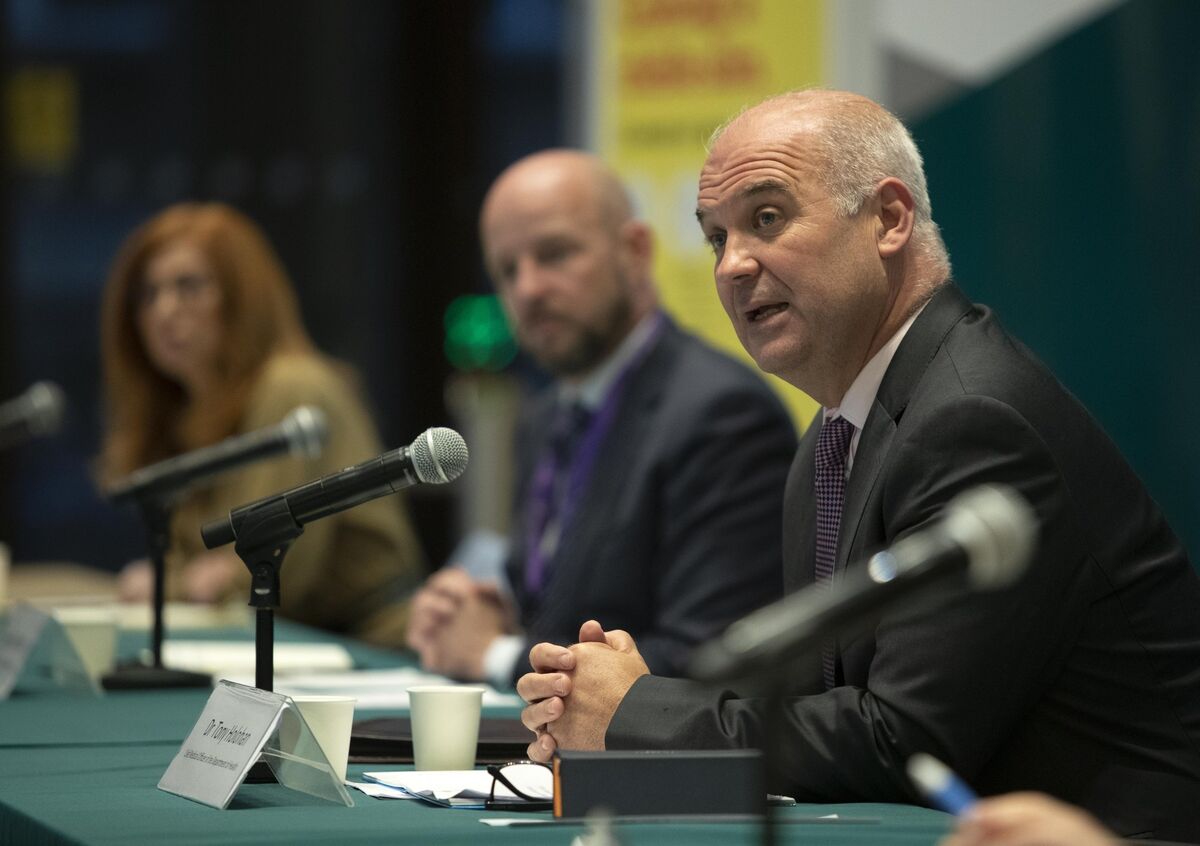Q&A: What we know about the South African Covid-19 variant
In Week South African And Last Arrived Earlier Identified Variant Month Was First This Ireland The
A new variant of Covid-19 first detected in South Africa has arrived in Ireland. It follows the arrival of the UK variant on our shores last month.
All viruses, including the coronavirus, mutate as it replicates itself and spreads.
These tiny genetic changes are often insignificant and Covid-19 has undergone thousands of these mutations.
However, the UK and South African variants have caused some concern among experts.
The South African variant was first identified last month and arrived in Ireland earlier this week.
Here we answer some of your questions about the newest variant.
The so-called South African variant was first detected in the Eastern Cape region.
The South African government announced the discovery of the mutation on December 18.
The fast-spreading mutation quickly became the dominant variant in Eastern Cape, Western Cape, and KwaZulu-Natal provinces.
The variant was named 501Y.V2 because it has the N501Y mutation - this mutation is also found in the UK variant.
It is found in the spike protein that the virus uses to gain entry into cells in the body.
Unlike the UK variant, the South African one carries two other mutations in the spike protein - E484K and K417N - named VOC-202012/01. VOC stands for Variant of Concern.
The N501Y mutation, also found in the UK variant, increases the transmissibility of the coronavirus meaning it spreads more efficiently.
There is no evidence that the variant causes more severe illness or an increased risk of death.
On Friday, Nphet’s virology expert Dr Cillian De Gascun said: “There is currently not enough information available to determine whether this variant poses a possible risk related to vaccine match and effectiveness.
“The antigenic characterisation of this new variant is ongoing, and results are expected in the coming weeks.”
He added: “The ECDC assessment states that preliminary analyses indicate that the South African variant is associated with a heightened viral load and may have increased transmissibility.
“It also states that there is no evidence to date that this variant is associated with higher severity of infection.”

On Friday, three cases of the South African variant were confirmed.
Chief Medical Officer Dr Tony Holohan said the three cases are all directly associated with recent travel from South Africa.
Dr de Gascun said he does not believe the new variant was passed on from the three people that were identified.
"The cases that we have identified here to date from December, they were identified in the setting in real-time based on their travel history and thanks to our colleagues in hospitals around the country and in public health.
"The individuals themselves self-isolated in accordance with the guidance. We don't believe there has been any onward transmission."
As of January 9, visitors to Ireland from both South Africa and the UK will have to show a negative Covid-19 test.
The results must have been produced within 72 hours of travelling.
Dr Holohan said they are particularly advising healthcare workers travelling from South Africa that it is essential they self-isolate for 14 days before entering or re-entering the workplace.
Dr de Gascun said the new variants of Covid won't spread if people deprive them of the chance.
"While the emerging variants are concerning and it is important that we are vigilant, it is also important that people don't feel that the public health measures are futile.
"It is really important that people understand that we can bring these new variants under control in the same way as we brought the original virus under control."
While Professor Lawrence S. Young, Virologist at the University of Warwick said: "The standard measures to restrict transmission (hands, face, space) will prevent infection with this variant.
"Along with improved surveillance (testing, tracing and isolating) and expediting the rollout of the vaccine, these measures will prevent transmission of this variant and any others that will arise."
Not enough is known about the variant yet to say for certain whether the South African variant will harm the effectiveness of current vaccines.
Research and tests are being carried out to see if it has the ability to evade natural or vaccine-induced immunity.
According to research conducted by Pfizer and BioNTech and researchers from the University of Texas, the Pfizer vaccine does protect against both the UK and South African variants.
The study, which has not yet been peer-reviewed, found that the samples had neutralising levels of antibodies that worked against the new strains.
Dr Julian W Tang, Clinical Virologist at the University of Leicester, said the two additional mutations found in the South African variant may interfere more with vaccine effectiveness than in the UK variant.
“This does not mean that the existing Covid-19 vaccines will not work at all, just that the antibodies induced by the current vaccines may not bind and neutralise the South African variant as well as it would the other circulating viruses – including the UK variant.
“Even if the South African variant becomes more widespread and dominant, the mRNA (Pfizer-BioNTech and Moderna) and adenovirus-vectored (Oxford-Astrazeneca and Russian Sputnik V) vaccines can be modified to be more close-fitting and effective against this variant in a few months."